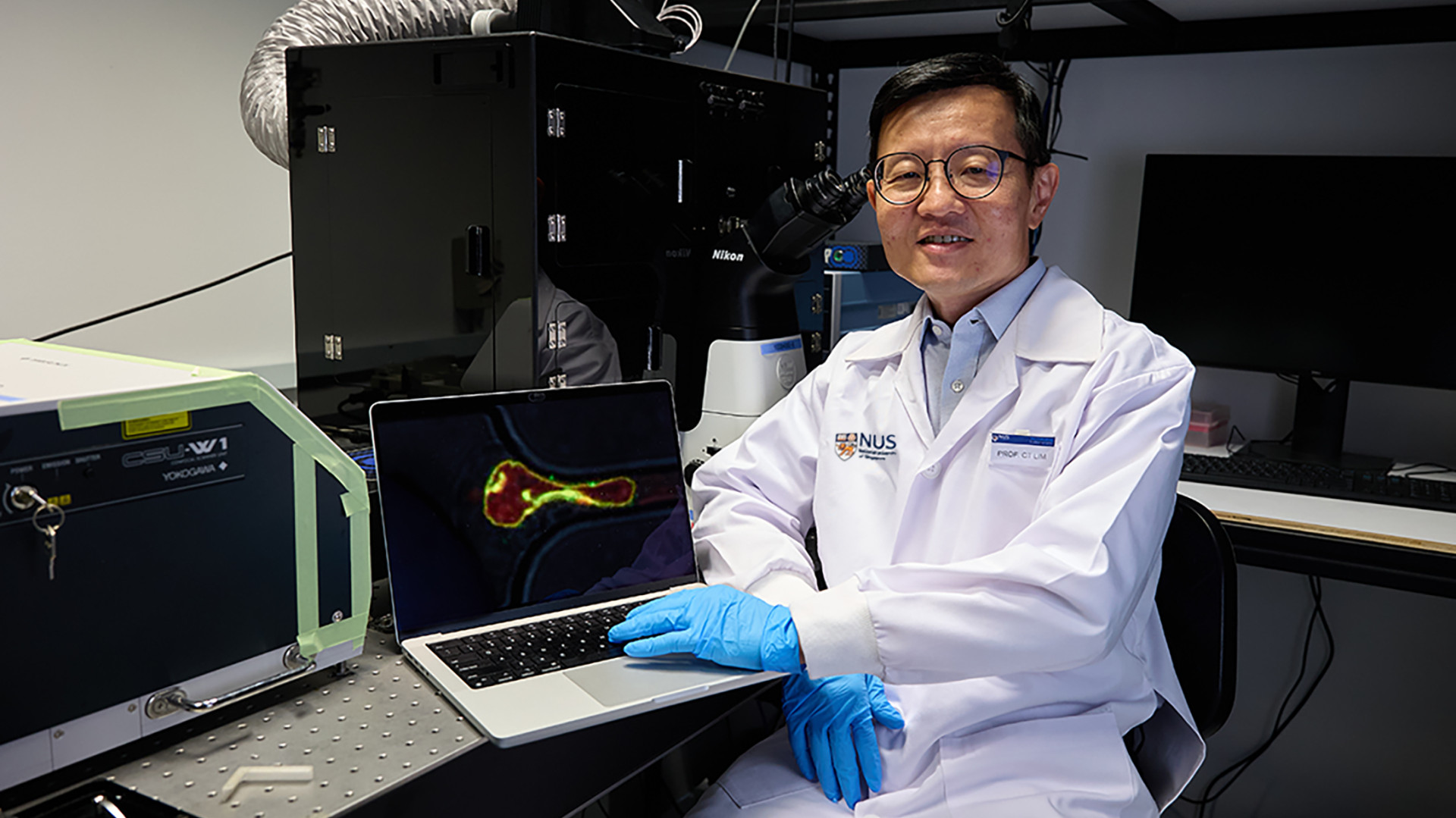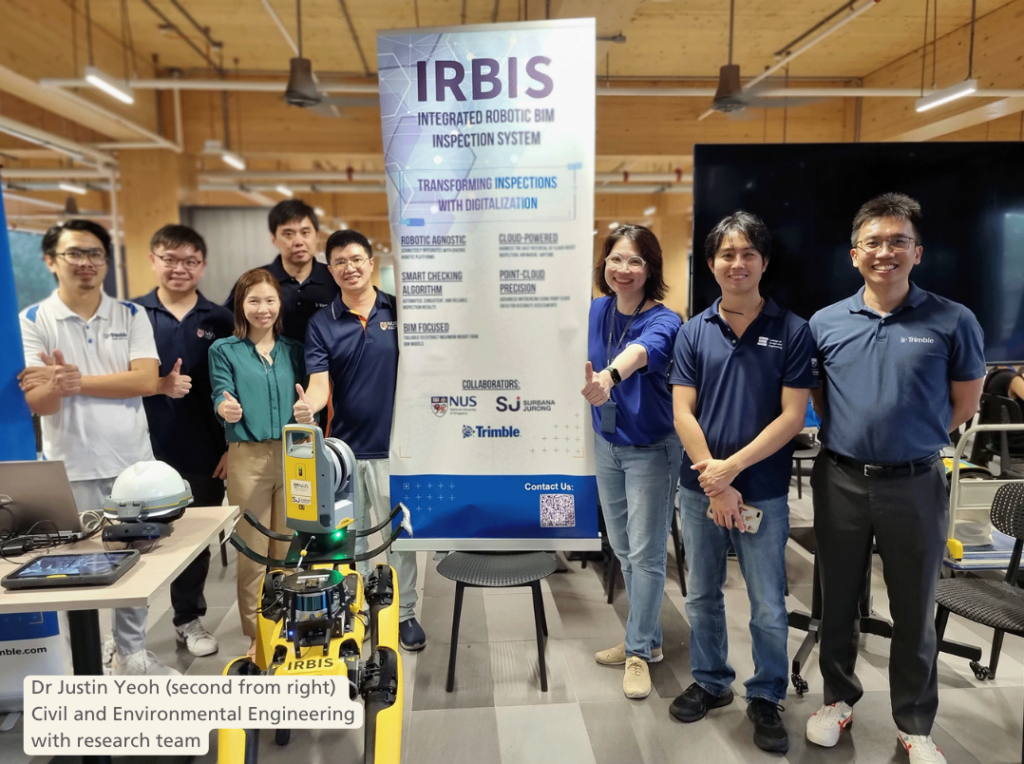HIGHLIGHTS
RESEARCH UPDATES, ACHIEVEMENTS & COLLABORATIONS
A revolutionary wastewater treatment using specialised multitasking bacteria has taken the top prize in the inaugural Sustainable Design and Engineering Innovation Challenge, announced as part of CDE Industry Day.
The research project led by Professor He Jianzhong (Department of Civil & Environmental Engineering) offers a low-energy, cost-effective solution for municipal water treatment that enhances nutrient removal and improves sustainability, reducing energy consumption and cutting reliance on costly chemicals.
The award includes a $100,000 grant to help further development and bring the project closer to commercialisation.
Other innovations recognised in the Innovation Challenge:
Second Place ($50,000 grant): An integrated robotics system for streamlined construction inspections, led by Dr Justin Ker-Wei Yeoh (Department of Civil & Environmental Engineering).
Third Place ($50,000 grant): A project on recycling electric vehicle battery waste for concrete production, led Dr Hongjian Du (Department of Civil & Environmental Engineering).
All three innovations were awarded the GAP50 grant from DeGap (NUS Enterprise), with a prize of S$50,000.
Industry Day was a day-long event on the CDE campus focussed on advancing sustainable design and engineering solutions and showcasing our faculty and students' latest research and innovation. In addition to the sustainability challenge, exhibits, keynote speeches, and panel discussions helped to spur engagement and knowledge-sharing between researchers, start-ups and industry partners, using the power of innovation to tackle the planet’s biggest challenges.

A recent study led by Professor Lim Chwee Teck has found that cancer cells which are resilient to physical stresses tend to multiply more rapidly to form secondary tumours. These ‘mechano-resilient’ cancer cells also exhibit greater resistance to chemotherapy.“Understanding how some cancer cells can survive mechanically-induced cell death is key to preventing the spread of malignant tumours, and paves the way for more targeted therapies,” said Professor Lim.
Read more: https://news.nus.edu.sg/when-cancer-takes-a-deadly-turn/

The Coastal Protection and Flood Resilience Institute, a new Centre of Excellence (CoE) dedicated to research into coastal protection and flood resilience, has been formally launched at a ceremony held at NUS. To be known as ‘CFI Singapore’, the multi-institutional and interdisciplinary institute will be led by Professor Richard Liew, Head of the Department of Civil and Environmental Engineering at CDE, and will draw on faculty expertise and resources from the College, elsewhere at NUS, in addition to other Singapore universities and institutions.
Read more at https://cde.nus.edu.sg/news-detail/centre-of-excellence-to-drive-coastal-protection-and-flood-management-research/
A surprising discovery in the field of electronics has revealed that loss and noise can have a positive and coordinated effect in some systems, potentially opening the way for major advances in performance in sensors and communications systems.
The discovery led by Li Zhipeng, Research Fellow, supervised by Associate Professor John Ho and Associate Professor Cheng-Wei Qiu upends conventional assumptions that loss and noise are inherently bad in electronic devices – for example, hindering accuracy in sensors - and are therefore something that should be minimised.
Loss refers to the dissipation of energy in a system, while noise refers to random fluctuations in the operating environment that disrupt signals
“Traditionally, scientists and engineers have tried to reduce loss and minimise noise separately to improve system performance,” said Li. “However, our research shows that in some cases the noise – especially when combined with loss - can actually be helpful rather than harmful.”
The discoveries were published recently in Physical Review Letters and Science Advances.
Read more at https://cde.nus.edu.sg/news-detail/unexpected-benefits-of-loss-and-noise-in-electronics-revealed/

Major grants (start date in August - September 2023) with total project value > $1M
| Hosting Unit | Project Title | Funding Programme (Source Of Funding) |
Principal Investigator | Co-Investigator |
| ChBE | Rational Design of Plant Nanotechnology: Towards Climate-Resilient and Smart Agriculture | NRF Research Fellowship (NRF-RF) – 2023 (NRF) |
Tedrick Thomas Salim Lew | |
| MSE | Developing An Integrated Photonic Platform for Scalable Quantum Information Processing | NRF Research Fellowship (NRF-RF) – 2023 (NRF) |
Zhu Di | |
| ChBE | In-Situ Investigation of Soft Porous Materials for Gas Adsorption and Separation | NRF Investigatorship – 2022 (NRF) |
Zhao Dan | |
| MSE | Ai-Assisted Wearable Undergarment Stethoscope for Early Detection Of Heart Failure | MOH NMRC Open Fund Individual Research Grant (OF-IRG) – 2023 (MOH) | Tural Khudiyev | |
| ChBE | Accelerate Pharmaceutical Manufacturing Through Systems Engineering and Machine Learning | A*STAR Manufacturing, Trade and Connectivity (MTC) Industry Alignment Fund - Pre-Positioning (IAF-PP): Pharma Innovation Programme Singapore (PIPS)(A*STAR) | Wu Zhe | Saif Abdul Kadir Khan |








